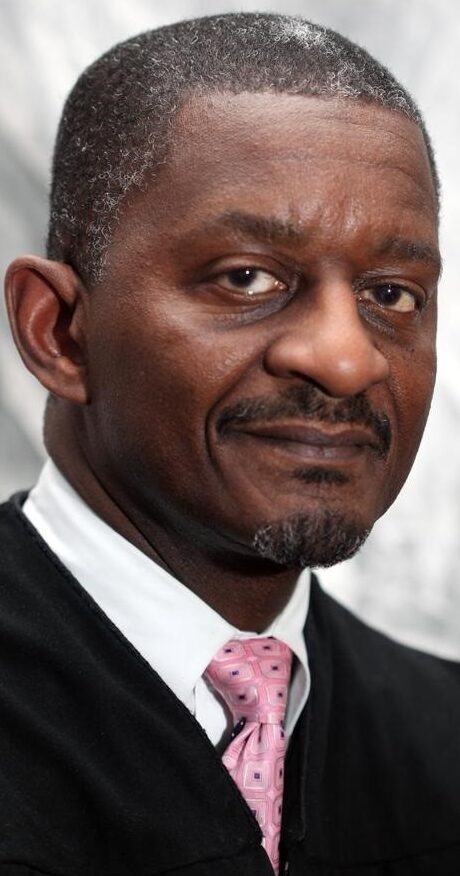Chief Judge Carl Ashley finds inspiration in much of the Rev. Dr. Martin Luther King Jr.’s legacy, but he is especially moved by how King ended his speech one day before his assassination in 1968.
“It’s the prophetic finale speech at the Bishop Charles Mason Temple in Memphis that haunts and inspires me to think beyond my personal well-being and strive to create better outcomes for all people,” said Ashley, the head judge for Milwaukee County Circuit Court.
Ashley pointed to King’s exact words at the end of the speech: “Like anybody, I would like to live a long life — longevity has its place. But I’m not concerned about that now. I just want to do God’s will … And so I’m happy tonight; I’m not worried about anything; I’m not fearing any man. Mine eyes have seen the glory of the coming of the Lord.”
“I don’t mean to say that I’ve reached his level of resolve, but it makes me push myself to accomplish more,” said Ashley, who was first elected a judge in 1999. “He is an iconic figure in world history that embodies the principles of nonviolent resistance as a tool for change.”
On Saturday, Jan. 13, Ashley will be the keynote speaker at the Rev. Dr. Martin Luther King Jr. 33rd Annual Memorial Prayer Service sponsored by the Black Catholic Ministry Commission and the Archdiocese of Milwaukee. His presentation will be on the prayer service’s theme this year: “Love, Law and Civil Disobedience.”
All are welcome to attend the service at 1:30 p.m. at St. Martin de Porres Church, Milwaukee. A lunch reception will follow the service. The service also will be livestreamed at www.archmil.org/UrbanMinistry/live-stream.htm.
Archbishop Jerome E. Listecki will take part in the prayer service as well as parish Pastor Fr. Michael Erwin, the parish choir and other sponsor representatives.
Ashley, a member of All Saints Parish for 45 years and a parish trustee, will first provide a little background about King for the benefit of audience members who have no direct memory of his work and accomplishments.
“Then, I’ll examine how civil unrest has brought to the forefront the complex interplay of love, law and civil disobedience. The presentation will delve into the powerful words of Dr. King’s ‘Letter from the Birmingham Jail’ and drawing connections to the current state of affairs,” Ashley said.
“Finally, I will suggest steps toward our responsibilities to continue his legacy,” Ashley said.
Ashley’s recalled that his first impression of King coincided with the Open Housing March in Milwaukee led by Fr. James Groppi and Vel Phillips on 200 consecutive nights from August 1967 to March 1968.
“We attended St. Boniface Grade School during the protest, but our father would not allow us to participate in the marches. I recall that I was disappointed in his decision. I was 11 years old at the time. It was later that I understood that my father, clearly aware of the dangers, was being protective of his young boys,” Ashley said.
“And, while Dr. King didn’t participate in person — his last visit (to the city) was at the University of Wisconsin-Milwaukee — the housing marches were consistent with his message to challenge unjust laws,” Ashley said.
One of nine children, Ashley earned his bachelor’s and law degrees from Marquette University and also attended Marquette University High School.
He was appointed Chief Judge of the First Judicial District — made up of Milwaukee County — last April by the state Supreme Court.

Judge Carl Ashley
